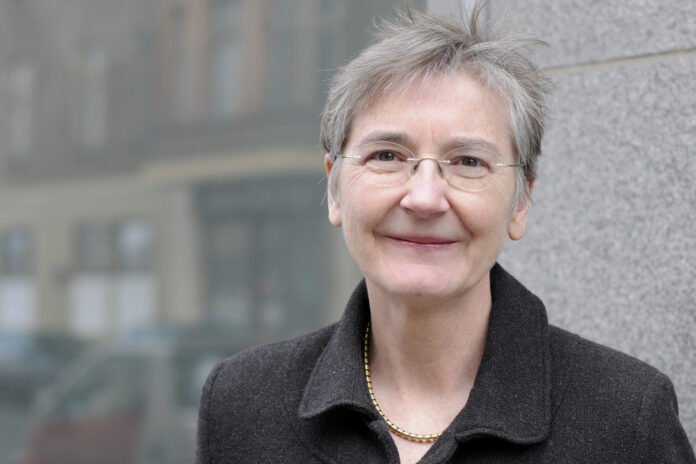
Judy Dempsey is a senior fellow at Carnegie Europe (a think tank) and editor in chief of Strategic Europe. She previously served as the Financial Times’ diplomatic, Jerusalem, Germany and Eastern European correspondent and then as a columnist for the International New York Times. On February 1, the Lithuanian Radio and Television news website LRT.lt published her article called “Baltics preparing for the day after in Minsk and Moscow”, in which she notes that smaller EU countries are punching above their weight in defending values and supporting pro-democracy forces in the EU’s neighbourhood.
Since joining the EU, Poland took the lead among the countries of Central and Eastern Europe in campaigning for human rights and democracy, whether in Ukraine, in Georgia, or elsewhere in the region. But today, writes Dempsey, Poland’s role is being superseded by the three small Baltic states of Estonia, Latvia, and – in particular – Lithuania. They have been vocal and active in defending the peaceful protests in neighbouring Belarus, calling for the resignation of Belarusian President Alexander Lukashenko.
The Baltic states have also expressed support of the demonstrators in Russia, calling for the release of opposition leader Alexei Navalny, detained on January 17, 2021, when he returned to Moscow from Berlin, after treatment there for a chemical attack on him by the Kremlin. Estonia, Latvia, and Lithuania are doing what they can to mobilize opinion in the rest of the EU, something Poland was able to do in the past, but since 2015, Warsaw’s reputation and credibility have been damaged because of the Polish government’s policies of undermining the independence of the judiciary.
Linas Linkevičius, Lithuania’s former foreign and defence minister, believes that the EU should keep to its principles and impose heavy sanctions on the top leaderships in Belarus and Russia as well as providing legal assistance, visas, educational opportunities, and safety for those fleeing repression.
The author considers that the EU’s sanctions on the Belarusian leadership have been mild, and those imposed on Russia after it illegally annexed Crimea and invaded parts of eastern Ukraine in 2014 have had little effect on changing Russian President Vladimir Putin’s foreign policy behaviour.
The Baltic states, joined by Poland, believe it is time to step up the pressure on Moscow. Germany, for one, should stop the completion of the Nord Stream 2 pipeline, which will bring natural gas from Russia directly to Western Europe via the Baltic Sea. However this will not happen. German Chancellor Angela Merkel has no intention of changing course, even though German dependence on Russian energy will increase, and even though the Baltic states and Poland consider Nord Stream 2 a potentially powerful lever against the Kremlin.
Citing several other examples of the EU’s seeming lack of influence, Dempsey concludes that neither the EU as a whole nor individual member states can bring about change. “As the case of Belarus suggests, it’s people power that might bring change. That’s how communist regimes from the Baltic states to Romania were toppled back in 1989.”
The EU should not accept the status quo, which in Belarus is already changing by virtue of the scale of the protests, the broad mobilization of civil society, and the overcoming of fear.
With information from LRT.lt
Photo: Judy Dempsey





























